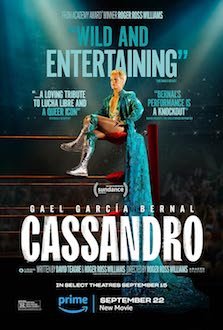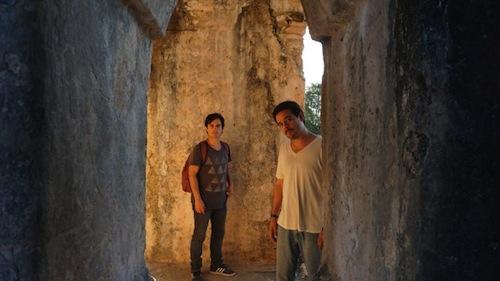Direction: Roger Ross Williams
Country: USA
The empathetic autobiographical drama Cassandro delves into the true story of Saul Armendáriz, a gay amateur wrestler from El Paso who, in the early 1980’s, catapulted from anonymity to fame after creating the ‘Exótico' character that lends the film its title. Directed by Roger Ross Williams, known for documentaries such as God Loves Uganda, Life Animated, and The Apollo, and co-written with David Teague, this rare hybrid soars more than it lumbers, brimming with insight and cinematic flair. It marks the director’s narrative debut feature.
The plot offers an intimate look at Saul’s dreams, struggles, and life - the breathlessness of a young, creative fighter seeking for recognition and the adult realization that life, no matter its accomplishments, is not without hardships. The protagonist, competently portrayed by Gael Garcia Bernal, lives with his loving mother and true inspiration, Yocasta (Perla de la Rosa). He also maintains a secret yet frustrating relationship with a married wrestler (Raúl Castillo), and unsuccessfully tries to cope with the emptiness left by an absent father who suddenly vanished after he came out at the age of 15. Occasional flashbacks peek into the characters’ past without succumbing to melodramatic trappings.
Provocative without being excessively flamboyant, Cassandro is endowed with remarkable performances, underlining themes of freedom, courage, and ambition in most scenes; it offers an engrossing exploration of Saul’s duality in life. For the way it was done, it doesn’t necessarily beg for attention, but it certainly earns it.










